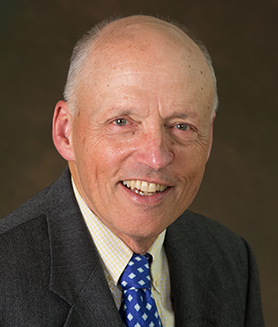2023 Stetten Lecture
The Great Escape: Phage Lysis and Its Control
Ry Young, Ph.D.
Distinguished Professor Emeritus
Founding Director of the Center for Phage Technology
Department of Biochemistry and Biophysics
Texas A&M University
Research Summary
Lysis is the breakdown of a cell caused by damage to its envelope, which in a bacterial cell, consists of its cytoplasmic membrane and a rigid cell wall. Bacterial lysis was long thought to be a passive process that occurred when the cell couldn’t maintain its envelope structure; indeed, many important antibiotics block extension and maintenance of the cell wall. Viruses that infect bacteria, called bacteriophages (or phages), were also thought to achieve host lysis in the same way. However, Dr. Ry Young, distinguished professor emeritus at Texas A&M University in College Station, discovered that instead, phage lysis is an elaborately regulated and scheduled event that involves a biological clock.
Phages have evolved at least two systems for lysis of the host bacterial cell. One involves multiple genes and proteins, conducted in a precisely timed manner. The second method involves a single protein capable of independently triggering bacterial lysis, and these proteins may provide alternative strategies for developing antibiotic therapies.Dr. Young has dedicated his career spanning over 4 decades to the study of phages, which continue to surprise and fascinate him with their elegant and highly evolved methods and the hypothesis-driven experimentation they provide. Much of the modern field of phage lysis comes directly from Dr. Young’s research. Even when others turned away from the field, he saw the potential to use phages, with their facile genetics, molecular biology, and biochemistry, to ask specific biological questions. Recently, the scientific community has started looking to phages as a tool for developing antibiotic therapeutics and manipulating human microbiota.
Dr. Young received his undergraduate biochemistry degree from Rice University in 1968. He entered the Massachusetts Institute of Technology’s (MIT’s) biology doctoral program with a National Science Foundation (NSF) postgraduate fellowship but was soon drafted into the military. After spending 3 years as an officer in the U.S. Navy working on anti-aircraft missile-targeting systems, he transferred his NSF fellowship to the University of Texas, Dallas, where he earned his Ph.D. in molecular biology. Following a postdoctoral fellowship at Harvard Medical School, he joined the newly formed medical school at Texas A&M University in College Station as an assistant professor and eventually moved to the department of biochemistry and biophysics. Throughout his career, he’s received many awards and honors for his research, teaching, and faculty mentoring. In 2010, he founded and became the director of the Center for Phage Technology, and after 44 years at Texas A&M, he transitioned to emeritus professor in August 2022.
NIGMS has continuously supported Dr. Young’s research since 1980. He is currently supported by the NIGMS
Maximizing Investigators’ Research Award program through grant
R35GM136396.

